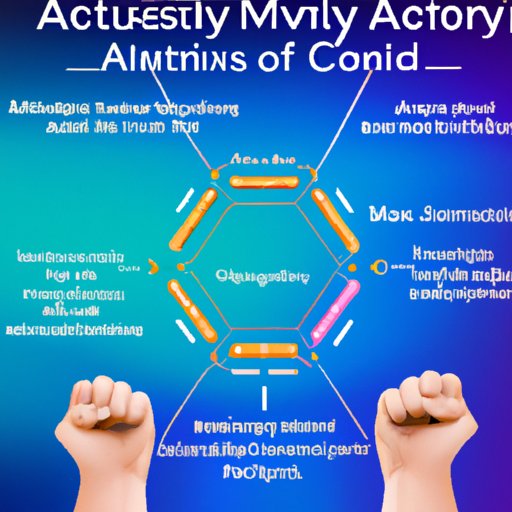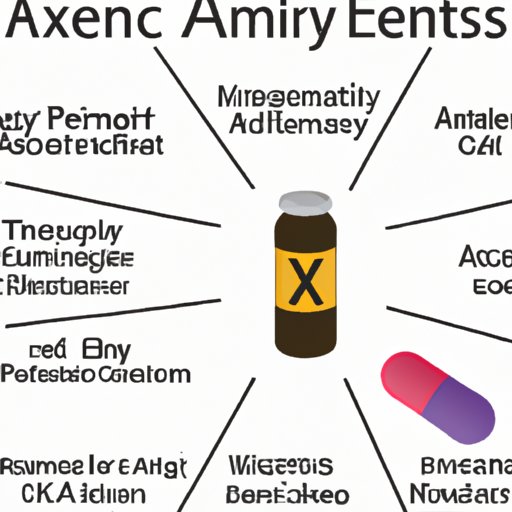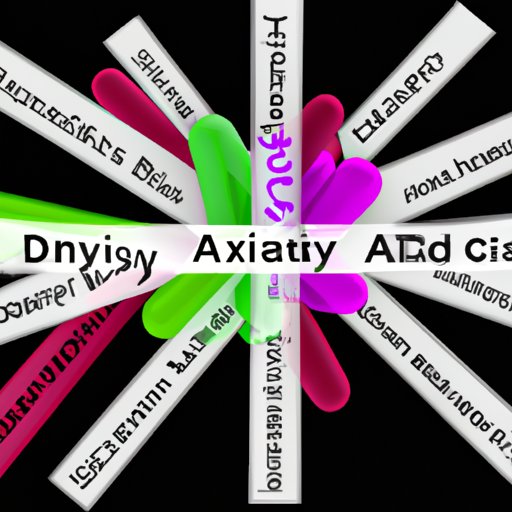
Overview of How Anxiety Medication Works
Anxiety is a normal emotion that everyone experiences from time to time. It can be caused by various factors, such as stress, fear or uncertainty. However, when anxiety becomes persistent and uncontrollable, it may be a sign of an anxiety disorder. According to the National Institute of Mental Health, over 40 million adults in the United States have an anxiety disorder, making it the most common mental health condition in the country.
Anxiety disorders include generalized anxiety disorder (GAD), panic disorder, social anxiety disorder, post-traumatic stress disorder (PTSD) and obsessive-compulsive disorder (OCD). Each type has its own set of symptoms, which may include restlessness, racing thoughts, difficulty sleeping, sweating, trembling and more. Anxiety medications, also known as anxiolytics, can be used to reduce these symptoms and help people manage their anxiety.
Anxiety medications work by targeting certain areas of the brain and changing the levels of certain neurotransmitters, such as serotonin, norepinephrine and GABA. Neurotransmitters are chemical messengers that regulate the activity of neurons, which are cells in the brain responsible for transmitting information. When the levels of these neurotransmitters are imbalanced, it can cause anxiety. Anxiety medications help restore balance by blocking receptors in the brain, increasing the production of neurotransmitters or decreasing their breakdown.

Types of Anxiety Medications and Their Uses
There are several types of anxiety medications available, each of which works differently. Here is a brief overview of some of the most commonly prescribed drugs:
Selective Serotonin Reuptake Inhibitors (SSRIs)
SSRIs are the most commonly prescribed type of anxiety medication. They work by blocking the reabsorption of serotonin, a neurotransmitter involved in regulating mood. By preventing serotonin from being reabsorbed, SSRIs increase the amount available in the brain, which can help reduce feelings of anxiety. Common SSRIs include Prozac, Zoloft and Paxil.
Tricyclic Antidepressants (TCAs)
TCAs are another type of anxiety medication that works by blocking the reabsorption of norepinephrine and serotonin. They are not as commonly prescribed as SSRIs, but they can be effective for treating anxiety. Common TCAs include Elavil, Tofranil and Norpramin.
Monoamine Oxidase Inhibitors (MAOIs)
MAOIs are a less commonly prescribed type of anxiety medication. They work by blocking the enzyme monoamine oxidase, which helps break down neurotransmitters like serotonin, norepinephrine and dopamine. By blocking this enzyme, MAOIs can help increase the levels of these neurotransmitters in the brain, thus helping reduce symptoms of anxiety. Common MAOIs include Nardil and Marplan.
Benzodiazepines
Benzodiazepines are a type of sedative that can be used to treat anxiety. They work by binding to GABA receptors in the brain, which increases the activity of the neurotransmitter GABA. This helps reduce nerve activity, leading to a calming effect. Common benzodiazepines include Xanax, Valium and Ativan.

Side Effects of Anxiety Medications
Like all medications, anxiety medications can have side effects. The most common ones include drowsiness, dizziness, nausea, headache and blurred vision. Less common side effects may include weight gain, changes in appetite, sexual dysfunction, dry mouth and increased sweating. It is important to talk to your doctor about any side effects you experience while taking anxiety medication, as they may be able to adjust your dosage or switch you to a different medication.
Potential Benefits of Taking Anxiety Medication
Anxiety medications can be beneficial in several ways. First, they can provide short-term relief from symptoms of anxiety. This can help reduce the frequency and severity of panic attacks and make it easier to cope with everyday stressors. Additionally, long-term use of anxiety medications can help reduce the frequency of symptoms and make it easier to manage anxiety in the long run.
How to Choose the Right Anxiety Medication for You
Choosing the right anxiety medication for you can be a challenging process. The first step is to consult with a doctor to discuss your symptoms and determine which medication might be best suited to your needs. Your doctor will consider factors such as your age, medical history and the severity of your symptoms when making a recommendation.
You should also consider personal factors when choosing an anxiety medication. For example, if you have trouble sleeping, you may want to avoid medications that cause drowsiness or have a sedating effect. Additionally, some medications may interact with other drugs or supplements you are taking, so it is important to discuss any possible interactions with your doctor.

When to Talk to Your Doctor About Anxiety Medication
If you have been taking anxiety medication and have not seen any improvement in your symptoms, it is important to talk to your doctor. They may be able to adjust your dosage or switch you to a different medication. Additionally, if you experience any side effects while taking anxiety medication, it is important to talk to your doctor as soon as possible.
The Role of Therapy in Combating Anxiety Alongside Medication
In addition to medication, therapy can also be an effective way to manage anxiety. Cognitive behavioral therapy, exposure therapy and dialectical behavior therapy are some of the most popular forms of therapy used to treat anxiety disorders. These therapies focus on identifying and changing negative thinking patterns, challenging irrational beliefs and developing coping skills for dealing with stress and anxiety.
Other types of therapy, such as mindfulness-based cognitive therapy, acceptance and commitment therapy, interpersonal therapy and art therapy, can also be helpful for managing anxiety. It is important to talk to your doctor or therapist to find out which type of therapy is best suited to your needs.
Anxiety medications can be an effective way to treat anxiety disorders. Different types of anxiety medications work in different ways and may have different side effects and potential benefits. It is important to consult with a doctor when choosing an anxiety medication and to talk to them if symptoms persist or medication is not working. In addition to medication, therapy can also be helpful for managing anxiety.
(Note: Is this article not meeting your expectations? Do you have knowledge or insights to share? Unlock new opportunities and expand your reach by joining our authors team. Click Registration to join us and share your expertise with our readers.)
